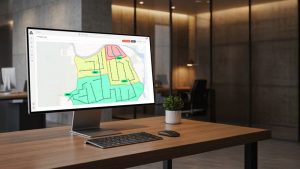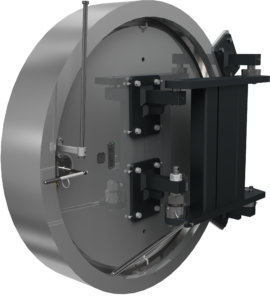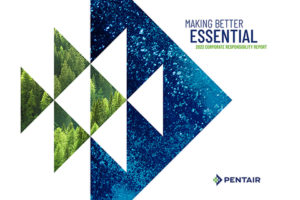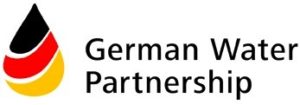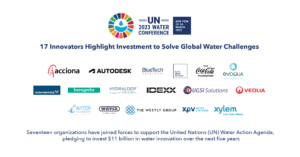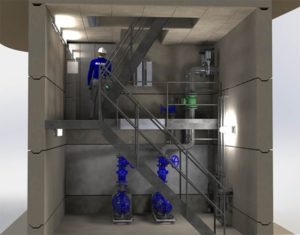Blue Planet Berlin Water Dialogues: New Solutions for Urban Water Infrastructures
On 22 October 2018 more than 120 participants from the international water com-munity came together in the “Humboldt-Box” located in the heart of Berlin for this year’s BLUE PLANET Berlin Water Dialogues supported by the Federal Ministry for the Environment, Nature Conservation and Nuclear Safety and the Berlin Senate Department for Economics, Energy and Public Enterprises.
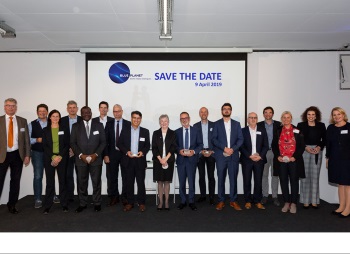
16 international speakers from the water sector contributed to Blue Planet Berlin Water Dialogues on “Innovative Solutions for Sustainable Smart Cities” © GWP/L. v. Loeper
In the context of this year´s motto “Innovative Solutions for Sustainable Smart Cities” 16 international experts from the water sector – among them Prof. Herbert Dreiseitl and the Honorary Chairperson of the Council of Canadians Dr. h. c. Maude Barlow – presented their future-orientated concepts on change processes and sustainable adaption concepts for urban spaces worldwide on their way to become “water smart”. Blue Planet 2018 was organized by German Water Partnership in cooperation with Kompetenzzentrum Wasser Berlin.
People need to understand water as a treasure and learn from nature
While the number of people living in cities increases continuously, the pressure on urban spaces to cope with water related challenges due to climate change rises as well. According to Herbert Dreiseitl, one way to tackle these challenges is to maintain and implement green infrastructure as well as to ensure that water is not being displaced to the underground. Change, adaption and regenerative processes happen permanently in the natural water regime. Being inspired by natural approaches helps to create new solutions for sustainable urban water management. Cities worldwide need to rethink traditional concepts as no or late investments are going to be expensive considering the damages and financial impacts floods or extensive draught leave behind. To implement new approaches, the engagement of local communities should be promoted next to traditional stakeholders to allow crossover cooperation for resilient and sustainable cities.
Blue Planet Berlin as a platform for discussions and exchange
Blue Planet 2018 was based on four thematic areas, each of which highlighted different challenges cities face on their way to become “water smart”. The thematic areas focused on engineered and nature-based solutions for urban water management issues, on challenges in their implementation processes as well as on future perspectives inspired by current solutions. After various international speakers held impulse lectures and pitches in the morning, they engaged in lively discussions with the participants during an extensive “Worldcafé” in the afternoon. The interactive format of Blue Planet 2018 not only gave a platform for an exchange of knowledge but also created a productive environment to discuss new ideas and to network within the participants from different fields within the international water sector. The developed results and suggestions were presented during a “Summary of Results” on stage and will form the basis for the next Blue Planet Berlin Water Dialogues on 9 April 2019.
Blue Planet Berlin attracted participants from all over the world
Blue Planet 2018 welcomed international speakers and participants. Among the international guests a delegation of representatives of the African Water Association (AfWA) from Abidjan, Côte d’Ivoire with the Executive Director Sylvain Usher was present as well as representatives of The Water Council from the United States. The event underlined once more the growing demand for an international and joint approach to solving our global challenges in water management.
Source: German Water Partnership e.V.

